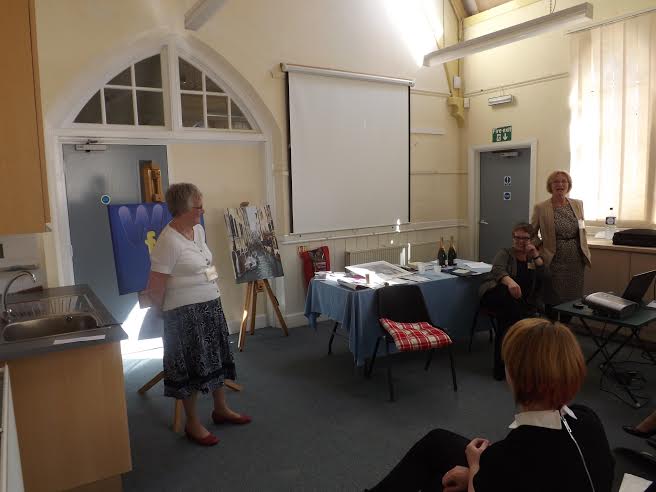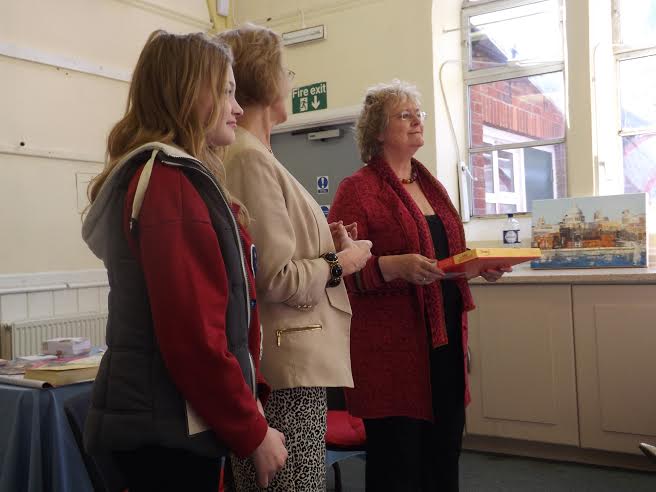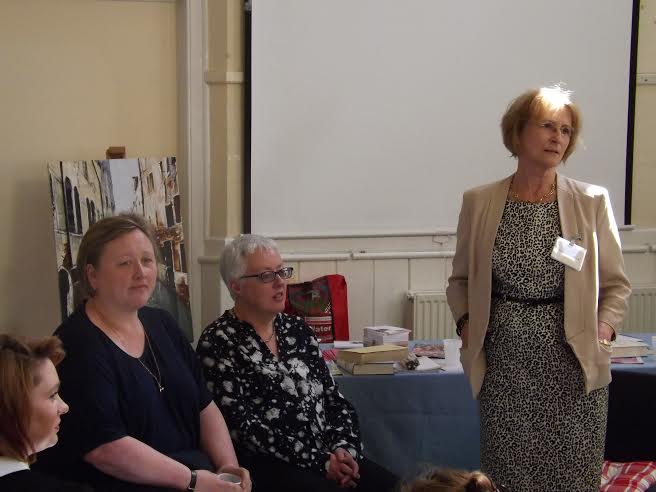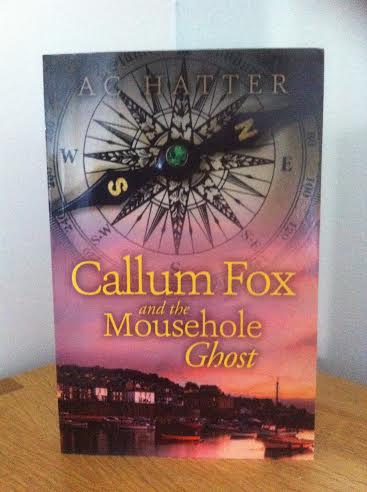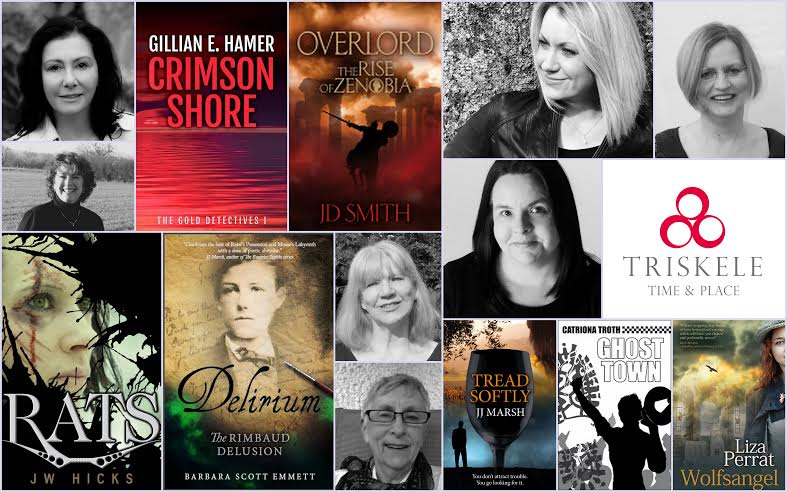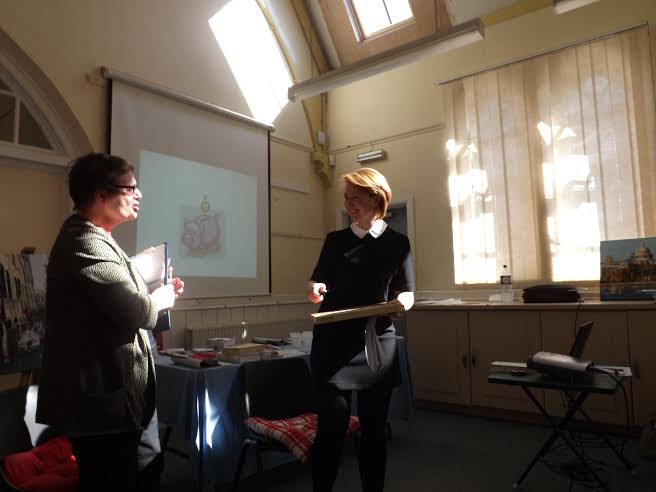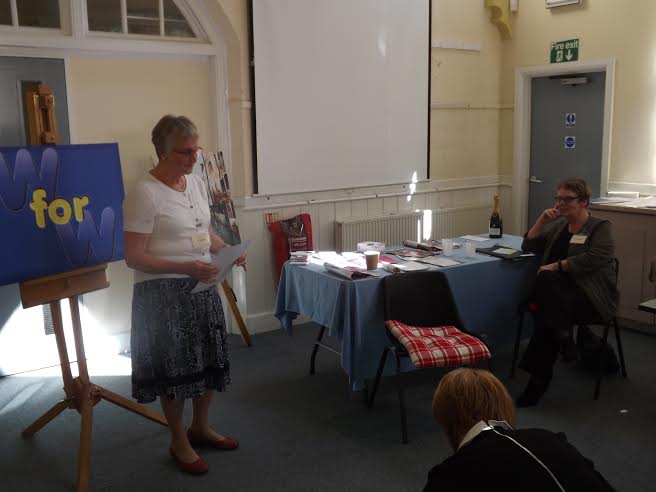What a brilliant day at Downley Community Centre, 18th April 2015.
This inaugural one-day opportunity for new and established writers, and for readers, did what it said on the packet. We laughed with, learned from, and mingled amongst, experts in the world of writing at the Words for the Wounded (WforW) LitFest. It was organised by the ‘Writing Grannies’ who run the charity.
To open the day, Matt Pain, Trustee, reminded us that the average age of wounded soldiers is 25 years old, which proved thought provoking.
Margaret Graham (‘writing grannie’) and Katie Fforde (WforW patron) opened the day with conversazione. These two bestselling authors covered key aspects of fiction writing, including sub-plots, the need to inhabit your characters and how to deal with a ‘soggy middle’. Something that troubles many of us – writers or not.
A massive amount of invaluable information was delivered with quick fire wit, during this hilarious and valuable session. Meg Cannell presented chocolates to Katie.
After book signing and coffee it was time for some murder and mayhem, with two ‘Midsomer Murders’ TV writers, Rachel Cuperman and Sally Griffiths. Rachel and Sally explained the practical aspects of TV play-writing, punctuated with their own amusing anecdotes.
Lunch followed, with wine and coffee, organised by Jan Speedie (‘writing grannie’), Margaret’s family and Josh Edwards. It was partially sponsored by Tesco, Morrison’s and Starbucks. A feast, it must be said, and the team did a fantastic job. Seamless.
Many authors choose the Independent Author publishing route and successful ‘Indie’ writers, Amanda Hatter and Catriona Troth, chaired by Penny Deacon, (writing grannie) described how to produce a high-quality self-published book,. This time Penny Deacon (writing grannie) chaired the session as Amanda gave many useful marketing tips, including how to penetrate large chains such as Waterstones, and Catriona explained the advantages of working as part of a writers’ collective, such as Triskele Books.
Felicity Trew, from Caroline Sheldon Literary Agency was introduced by Penny Deacon and gave a power-point presentation in which she explained the role of literary agents: negotiating publishing deals, making sure the contract protects current and future income opportunities, and chasing payments/royalties.
She also advised on how writers should approach agents, using amusing spoof emails to illustrate her points, and she reminded the audience to check agent’s submission instructions. Her agency’s website has a useful list of ‘pet hates’ including applicants omitting the requested information and obvious ‘carpet bombing’ applications.
Felicity was at the LitFest all day, and was enormously generous with her time.
Finally, Jan Speedie introduced Penny Deacon who talked about why she ‘turned her back on romance and took to murder’. She compared her experiences of writing Mills and Boon to that of crime fiction. This was a relaxed and amusing end to an inspirational, funny, information-packed day.
Prizes, donated by artist Sharon Bennett, Tesco, (Bollinger champagne) The Wellington, and Katie Fforde were raffled for WforW. Speakers were given boxes of chocolates, partially funded by Thornton’s and delegates were given books donated by Random House. Penny Gerrard made biscuits from heaven and Susan Atkins’ chocolate cake was seriously good.
One clever touch was the notepads and biros on every seat, for invaluable notetaking. Everything was so carefully thought out. It makes a difference.
Next year’s LitFest line up of speakers will include Elizabeth Buchan, bestselling author (patron of WforW) Jemima Hunt, Literary Agent, Catherine Balavage, e-magazine owner (Frost Magazine), and Tracy Baines, successful genre short story writer.
A total of £1,500 was raised by the inaugural LitFest for the rehabilitation of the wounded.
http://www.wordsforthewounded.co.uk

